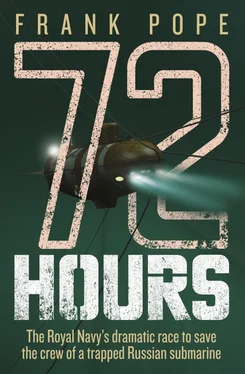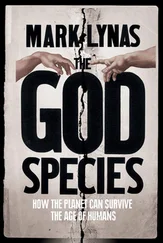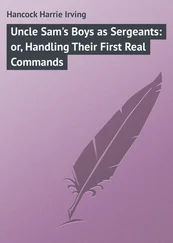With their mother helpless in bed, Artyom fed the twins and then took them out for a walk around the streets of Zavoyko to give them some air.
Though today the clouds were starting to roll in, on a good day the view back towards Petropavlovsk was framed by the majestic peaks of the twin volcanoes Koryaksky and the smaller Avachinsky, while on either side the horizon was serrated as far as the eye could see. Artyom walked with the girls, telling them stories to try to cheer them up.
They weren’t the easiest streets for lifting gloomy spirits. Somehow the rugged natural beauty of the surroundings only made the town’s decay more depressing. Artyom knew the situation only too well, but these streets made it all seem bleaker still.
Saturday, 6 August
SS + 45 h 30 mins
02.00 UK – 05.00 Moscow – 14.00 Kamchatka
RAF C17, over the Russian Arctic
Pretty soon all activity had ceased in the back of the C17. Trays of food had been handed out by the loadmasters, and the RAF boys were all settling into their sleeping bags, looking warm and comfortable. Just seeing them made the cold feel even worse.
Unable to sleep, Riches tried to distract himself by visiting the flight deck to see if any operational updates had come through on the radio, but there was nothing. His mind began playing out various scenarios of what lay ahead. Most likely, he thought, their help would turn out not to be needed. After all the fuss, they’d be sent home with nothing to show for the effort and expense of getting there. He wondered about the wildly varying estimates of remaining air that had been given by the Russian authorities. All they had were the Russian assurances that the men inside were still alive. Given the time they’d been trapped, there was a good chance that they were already dead. Were they being set up as a distraction to draw fire away from a failed Russian rescue, or worse, as a scapegoat?
Then the real demons began to arrive. What if they were needed and he wasn’t up to the job? Suddenly, unexpectedly, his chance had finally come to accomplish something tangible and win respect from the submarine community that he so valued. Yet he’d shelved his ambitions of command so long ago and with it the total confidence that was an essental part of the job. Even with familiar ships in known waters there was so much that could go wrong on this kind of operation. In the wilds of Russia, it would surely be a lot worse.
He tried to rein himself in by summoning back the training that he’d had to leave behind when his genetic heritage had forced him from the operational fleet. He began thinking the problem through step by rigorous step, breaking everything down into manageable chunks that could be accomplished with effective logistics and a good team. He’d done it in exercises dozens of times. Everything would come automatically. How much could really go wrong?
Sitting on his canvas seat in the C17, Stuart Gold was huddled up in all the clothes he’d brought with him, trying to clear his mind and get some sleep. He’d tried lying on the floor using a foul-weather jacket as a tent, but that hadn’t worked. There was adrenaline running through his veins. After ten years of training, he badly wanted to get the chance to prove that his equipment could actually do the job. But it also seemed impossible to him that they would be the first team to get there, what with the proximity to Kamchatka of both the Americans and the Japanese. Both nations were superbly equipped with underwater rescue equipment, with everything from ROVs like Scorpio to saturation diving systems that allowed men to work for up to a month in water as deep as 300 metres.
Unable to rest but aware that he needed to, Gold stood up to take a look if there was anywhere slightly darker, warmer or less noisy where he could lie down. Walking towards the front of the aircraft he squeezed between the Effer Crane and the 1,000-metre drum of umbilical cable and found the converted shipping container that made up Scorpio’s tool shed. Alongside was the 20-foot control cab. When he saw it, Gold smiled. Inside was the cushioned bench that was always fought over on exercises during teabreaks by those wanting a lie-down. He opened the door, letting the light spill in. There was a groan from inside. There on the cherished bench, huddled up in a waterproof jacket, was Charlie Sillet sprawled out beneath a jacket. Gold apologised, but was grateful to hear Sillet say that he’d give it up for Gold in a couple of hours.
Pete Nuttall was used to the cold from his lifeboat work. He should be used to the nerves too, but this job was different. He was confident that he knew what he was doing when the boat got called out. There were uncertainties, sure, but at least he knew what they were. The weather could be worse than it had looked from the shore or from the forecast, or the state of the stricken vessel could be worse or the crew injured in some way. But here they were stepping into an unknown world where everything was a mystery. There wasn’t even a local forecast.
He wished Tommy Calvert had not been luxuriating on Paul Allen’s yacht in the Mediterranean but here on the plane. He was glad to be going out on this mission, but he would have loved Tommy to be there with him. Not only was there a distinct lack of information on what they were about to face, making their planning difficult, but he’d seen the TV crews at Prestwick and was all too aware of the spotlight of the world’s media that was on them. Then he caught himself. Tommy always told him to stop caring so much. Why do you care? he’d ask. Stop it .
It would have been interesting to see Tommy out here, he thought. Tommy always boasted that he only did things that were to his own advantage. If you were on a sinking boat with him and there was only one lifejacket, you wouldn’t be the one with the lifejacket, he’d say. The thought made Nuttall smile, before he snapped back to his current situation. Even Tommy would care about this one, with seven men slowly suffocating.
Nuttall tried to think about the cables that had snagged the submersible. What else was down there? It would be all too easy to get himself tangled, especially in an unpredictable environment. Get caught up badly enough and he could end up losing the Navy’s £5m rescue system.
In the back of his mind, impossible to banish, was a dark pit of recent memory. Just a few months ago the lifeboat had been called out to Morecombe Bay, on the west coast of the UK above Blackpool, where a father and a son had been out fishing. The previous year 23 Chinese people had been killed when out on the sands picking cockles, caught by the tide which can come in as fast as a galloping horse. The south side of the bay was less treacherous, and ‘fishing the tide’ was a popular pursuit. You’d throw out a hook on a long pole, then keep ahead of the rising tide with a brisk walk. Usually it was easy to know which way to land – just put your back to the water – but that day a thick fog had rolled across the bay. With visibility down to a few tens of metres, occasional sandbars could cause confusion; the water could creep around out of sight, then appear to be coming in from all sides. With his footprints disappearing in the stalking sea, the father had become disoriented. As the water crept higher he had managed to make a call on his mobile phone, and soon the lifeboat’s inflatable was screaming out across the flats towards their estimated position. But when the rescuers had arrived and cut the engine to a low idle and listened, they could hear no shouts of distress. Within the hour they found them, both but it was too late. Both had drowned.
The team estimated they’d been within half a mile of reaching them in time. Just those few minutes had separated life from death. Now there was a family ripped apart by the tragedy, without husband, son, brother. Was there something they could have done to get there faster? It was so easy for people to misjudge the sea, and it took so little time to be overcome by it. Now there would be seven people relying on him to get them out in time, each of them with families and loved ones.
Читать дальше












